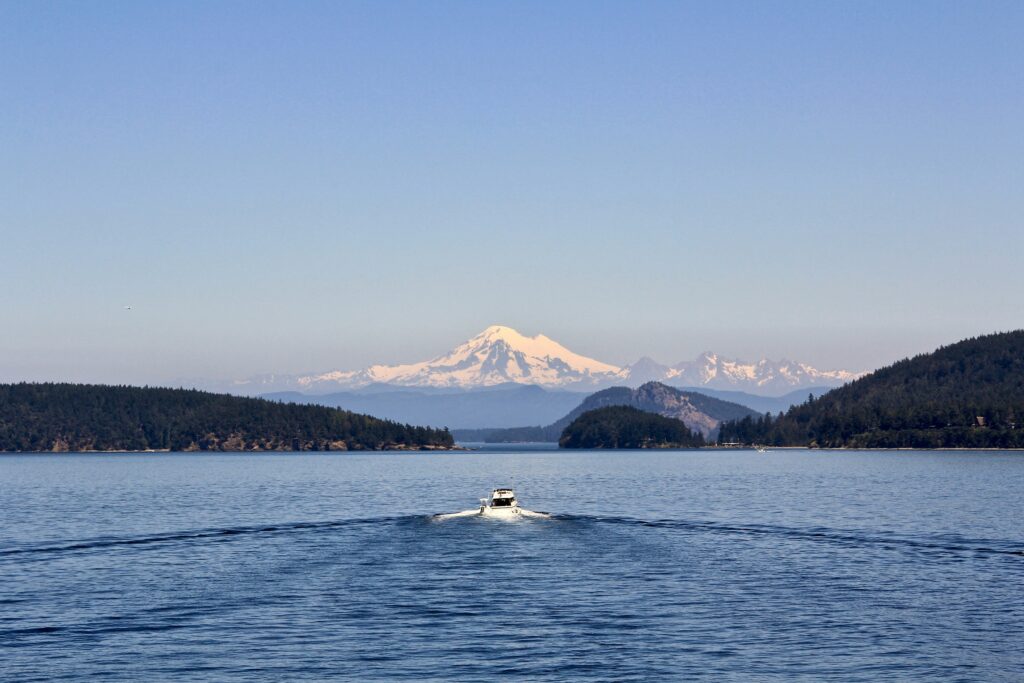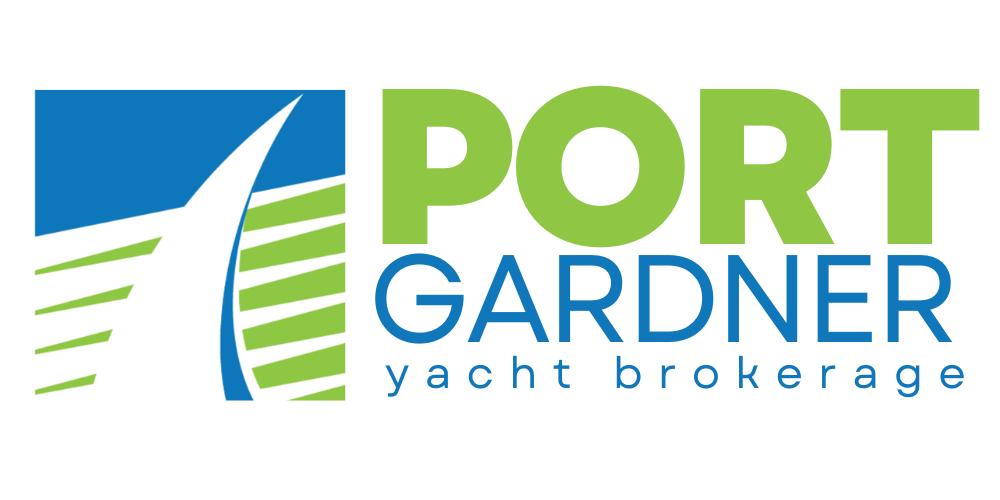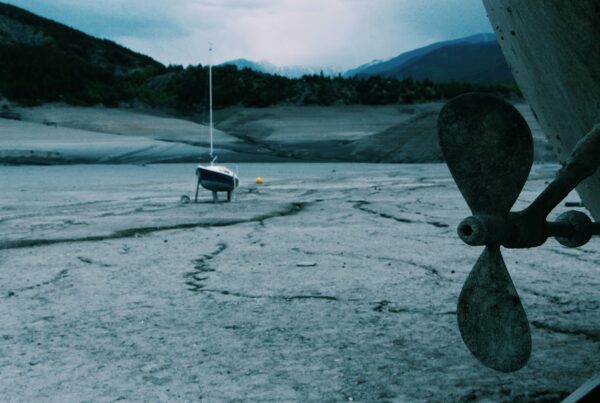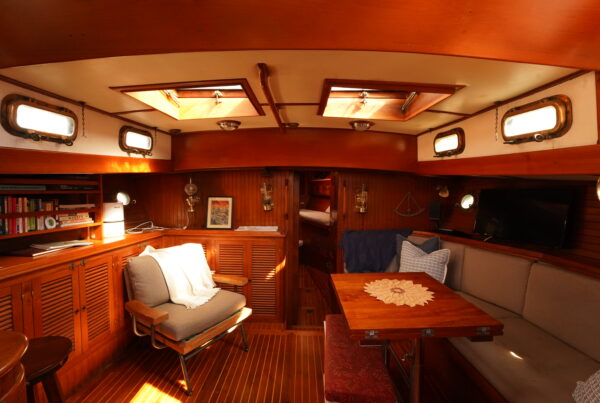As you embark on a new chapter in life, the prospect of downsizing and living aboard a boat can offer financial freedom, simplified living, and endless adventures. However, such a significant transition requires careful planning, especially regarding legalities, documentation, and managing personal belongings. This guide will walk you through the essential steps to help ensure a successful transition.

Benefits of Downsizing to a Boat
-
- Financial Freedom
- Simplified Living
- Adventure and Flexibility
Downsizing to a boat offers several advantages for retirees and empty nesters. One significant benefit is financial freedom. Selling your home and property can generate funds for purchasing a boat and create a more affordable living arrangement. Additionally, life on the water often results in reduced living costs, including lower property taxes, maintenance expenses, and utility bills. These financial benefits can provide peace of mind and allow you to allocate resources toward pursuing your passions, hobbies, and travel experiences.
Another advantage of downsizing to a boat is the promotion of a simplified lifestyle. With limited space on board, you are encouraged to prioritize your belongings, resulting in a decluttered living environment and a focus on acquiring experiences rather than material possessions. Embracing minimalism can lead to reduced stress, increased mindfulness, and an enhanced sense of well-being.
Lastly, living aboard a boat offers unparalleled adventure and flexibility. You can indulge in various outdoor activities like fishing, snorkeling, and paddleboarding while embracing waterfront living. The ability to change locations at a moment’s notice enables you to explore new destinations, immerse yourself in different cultures, and create enriching experiences that foster personal growth and unforgettable memories.

Choosing the Right Boat
Consider factors such as size, comfort, and onboard amenities when choosing a liveaboard boat. Popular options include:
-
- Trawlers: Spacious interiors, fuel efficiency, and long-range capabilities make trawlers a comfortable choice for extended stays.
- Motor yachts: Ample living space, entertainment areas, and modern conveniences ensure an enjoyable and stress-free experience.
- Catamarans: Wide beams and stable platforms provide generous living space, making catamarans popular for full-time liveaboards.

Preparing for Life Aboard: Legal and Documentation
Preparing for a life aboard a boat involves addressing various legal and documentation matters, as well as managing finances and assets.
Establishing a legal residence is crucial for receiving correspondence, either by renting a small apartment, using a family member’s address, or utilizing a mail forwarding service. Ensure that you have a secure and reliable way to manage your mail and important documents.
Obtaining boat insurance is vital for protecting your investment and covering personal belongings and liability. Research and compare different policies to find the best coverage for your needs.
Registering your vessel with the appropriate authorities is essential, as well as obtaining necessary licenses, permits, and certifications for operating your boat legally and safely.
When it comes to selling your home and assets, consider working with a real estate agent and financial advisor to ensure a smooth and profitable process. They can guide you through the sale of your property and help manage your finances, providing valuable insights and recommendations tailored to your unique situation.

Organizing your belongings is another important aspect of preparing for life on a boat. Consider selling furniture and household items through online marketplaces, local classifieds, or consignment shops. Rent a small storage unit for keepsakes and important documents or ask friends and family for assistance. To downsize effectively, sort items into categories such as keep, sell, donate, and discard, and start with less sentimental belongings before tackling more personal possessions.
Selling and Managing Personal Belongings
-
- Selling Furniture: Utilize online marketplaces, local classifieds, and consignment shops to sell unwanted furniture and household items.
- Storing Keepsakes: Rent a small storage unit for sentimental items and important documents, or ask friends and family for assistance.
- Downsizing Tips: Sort items into categories such as keep, sell, donate, and discard. Start with less sentimental items, and gradually work your way through your belongings.
Embracing Life Aboard: Key Adaptations
Living on a boat requires adapting to a new environment and adopting efficient practices to optimize your space and resources.
Utilize innovative storage solutions to make the most of your living space. Under-berth drawers, hanging organizers, and multi-functional furniture can help you keep your belongings organized and easily accessible. Be creative with your storage solutions to create a comfortable and functional living environment.
To conserve power and resources, install energy-efficient appliances and LED lighting. You may also want to consider incorporating solar panels for sustainable energy production. These eco-friendly additions can help you maintain a self-sufficient lifestyle while reducing your environmental footprint.

Maintaining connections with loved ones is crucial for a fulfilling life on the water. Stay in touch through video calls, social media, and regular visits to ensure strong relationships despite the distance. Prioritize time for meaningful conversations and gatherings to nurture your support network and keep your bonds strong.
As you adapt to life aboard a boat, you’ll develop new habits and strategies to make the most of your unique living situation. By embracing these changes, you can create a rewarding and memorable experience on the water.
Live the Adventure
Living aboard a boat offers retirees and empty nesters an exciting opportunity to explore new horizons, prioritize experiences, and embrace a life of freedom and adventure. By carefully planning your transition and managing the various aspects of life on the water, you can create a fulfilling and memorable experience.




